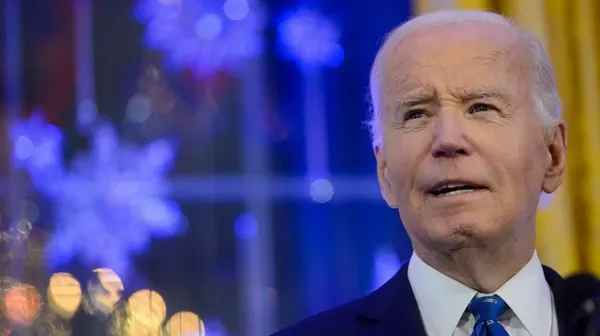
Jul 24
Reports: Grindr Partially 'Blocked' in Olympic Village to Protect Queer Athletes
Kilian Melloy READ TIME: 4 MIN.
Reports say that Grindr's "explore" function has been suspended at the Olympic Village in Paris to help protect queer athletes representing homophobic countries from being outed.
"A post on X, formerly Twitter, showed 'no profiles were available' with one person saying Grindr had been 'blocked' when he tried to find other users in the village," UK newspaper the Daily Mail reported.
The Mail detailed, "The 'explore' function on the hook-up app has been limited meaning people won't be able to find any profiles where more than 14,000 athletes will be based."
Added the newspaper: "The Paris 2024 organizing committee told MailOnline dating apps are accessible within the Olympic Village, 'but for some, geolocation has been deactivated by the app publisher.'"
It's thought that this is a repeat of how Grindr adjusted what users could see during the 2022 Winter Olympics in Beijing.
"Users in the Village can see each other's profiles, but those outside the Village can't," Bloomberg reported at the time, noting that the adjustment was "designed to protect the world's top athletes from persecution or harassment."
Bloomberg quoted Grindr for Equality head Jack Harrison-Quintana, who advised, "We want Grindr to be a space where all queer athletes, regardless of where they're from, feel confident connecting with one another while they're in the Olympic Village."
Bloomberg went on to relay, "Ordinarily, Grindr users anywhere could use the 'Explore' function to find Olympics participants using the app, and during past games, people from outside used the feature to out athletes on social media and, in one case, in a mainstream American news outlet," namely, the Daily Beast. A straight reporter from that publication contacted several queer athletes at the 2016 Summer Olympics in Rio, and published identifying details in an article that the outlet subsequently edited before removing it entirely.
"Dating, flirting and hooking up are clearly on athletes' minds, as the number of condoms available attest," queer athletics site Outsports noted. "Put young, super-fit athletes together in the same space and fireworks are sure to occur, regardless of orientation."
"Just ask Tyler Downs, an American diver," the site added, quoting Downs' comments to US Weekly while talking about "his partnership with Rizz, the world's first flirting app":
"I mean, it's not completely off my mind," the athlete admitted. "Whatever happens, happens. I guess we'll have to see."
Reports of the app's adjustments come after renewed rumors that the Paris Olympic Village has furnished athletes with "anti-sex beds," bunks made of cardboard. However, as in the 2020 Olympics – where cardboard beds were also provided in the name of sustainability – athletes have posted evidence that the beds are not, as feared, too flimsy to hold up under the rigors of sexual activity.
Among the athletes debunking the "anti-sex bed" rumors are out British gold medalist diver Tom Daley and Rhys McClenaghan, a gymnast from Ireland.
"This is cardboard," Daley narrated in a video posted to TikTok as he showed off his bed's narrow dimensions and the storage space underneath. "As you can see, it's like a box," he added, although it was covered by a comfy-looking mattress.
@tomdaley CARBOARD BEDS IN THE OLYMPIC VILLAGE! #paris2024 #olympics ♬ original sound - Tom Daley
Cardboard as it may have been, the bed held up well to Daley's most energetic testing as the gold medalist jumped on the bed, ending up on all fours on the mattress and grinning at the camera.
McClenaghan, too, posted video of himself giving the Paris beds a workout, recalling his earlier shakedown of the furnishings from 2020 by saying, "When I tested them last time, they withstood my testing."
"Maybe I wasn't rigorous enough, though," McClenaghan went on to say, before leaping onto his Paris bed for a round of energetic bouncing, rolling, and even a handstand.

"Anti-sex" rumors concerning the construction of the cardboard beds may have been propelled by COVID restrictions that were still in place when the beds were introduced in 2020.
Kilian Melloy serves as EDGE Media Network's Associate Arts Editor and Staff Contributor. His professional memberships include the National Lesbian & Gay Journalists Association, the Boston Online Film Critics Association, The Gay and Lesbian Entertainment Critics Association, and the Boston Theater Critics Association's Elliot Norton Awards Committee.







